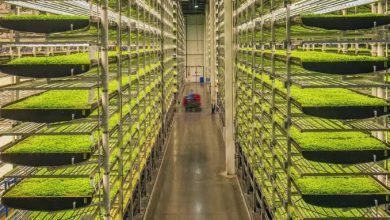Exploring the Booming Opportunities for Startups in the Indian Cake Market

The Indian cake market is poised for significant growth, with projections indicating a compound annual growth rate (CAGR) of 12.5% over the next five years. This promising outlook presents a golden opportunity for startups to carve out a niche in this expanding sector. Several key factors contribute to this robust growth, including changing consumer preferences, increasing urbanization, and the rising working population, all of which drive the demand for convenient and nutritious food options.
The Shift in Consumer Preferences
Bakery products have long been a staple in human nutrition due to their convenience, accessibility, and nutritional benefits. In recent years, the consumption of cakes has gained considerable traction, driven by shifting consumer perceptions towards convenience and health attributes. This has spurred the popularity of on-the-go cake products, which can be enjoyed either fresh from the bakery or made at home for convenience.
Urbanization and the increase in the working population have significantly influenced out-of-home consumption patterns. There is a growing preference for instant, nutritious products, which is expected to propel market growth over the long term. This shift opens up vast potential for startups to innovate and cater to these evolving consumer needs.
Impact of the COVID-19 Pandemic
The COVID-19 pandemic brought about a notable change in consumer behavior. Concerns over product safety and hygiene led to a decline in purchases from bakery shops, while the trend of homemade cakes surged. This shift presents a unique opportunity for startups to focus on delivering safe, hygienic, and high-quality cake products that consumers can trust. Furthermore, the rising trend of gluten-free products in India provides a niche market that startups can tap into, with companies like Britannia and Parle already leading the way in catering to these consumer preferences.
Untapped Potential in Emerging Economies
The emerging economies of the Asia-Pacific region, including India, represent a vast, untapped potential for the organized development of bakery products. Rising disposable incomes, rapid urbanization, and a growing demand for a Western-style diet are key drivers of this potential. In India, the bakery sector is traditionally divided into three segments: bread, biscuits, and cakes. While bread has seen significant value growth, cakes and pastries have experienced comparatively lower sales growth. This indicates a ripe opportunity for startups to innovate and capture market share in the cakes and pastries segment.
Muffins, puffs, and other savory products are also gaining popularity, especially among the younger population who frequent independent bakeries. Companies like Monginis, which offer a variety of packaged cakes, are well-positioned in this growing market. Startups can learn from such examples and introduce a diverse range of products to cater to the evolving tastes of consumers.
Health and Convenience Driving Market Growth
Increased health awareness among consumers and the demand for clean-labeled packaged food are significant drivers of the cake market. The affordability and convenience of bakery items have made them a staple in the diets of many consumers. The working population in metropolitan cities such as Mumbai, Bangalore, Delhi, and Hyderabad is driving the growth of the packaged cake segment. The proliferation of fast-food chains and the rise of online food stores have further stimulated demand for bakery items. The convenience of fast delivery services and discounts on products through online platforms has boosted the demand for packaged foods.
Value-Added Products and Market Expansion
The introduction of value-added bakery products is giving a significant impetus to market growth. Local and global market players are expanding their presence across India to strengthen their portfolios and meet increasing consumer demand. For instance, Theobroma, a popular patisserie from Mumbai, opened its first outlet in Chennai in October 2022 and now boasts over 100 outlets across India. Such expansions highlight the growing market opportunities for startups.
The packaged cake segment is the fastest-growing category, bolstered by the development of vegan packaged cakes. With approximately 40% of India’s population being vegetarian, the introduction of vegan cakes is expected to drive market growth. Companies like Frontier Biscuit Factory Pvt. Ltd. have capitalized on this trend, offering a rich product portfolio in the vegan packaged cake market. Both online and offline sales channels contribute equally to market growth, providing multiple avenues for startups to reach their target audience.
The Rise of Online and Offline Sales Channels
The rural and semi-urban populations dominate the major market areas where convenience stores and supermarkets/hypermarkets gain high traction. In urban areas, especially in Tier-1 and Tier-2 cities, online channels are gaining popularity due to the high market penetration of grocery delivery services like BigBasket and Amazon Groceries. Additionally, some online flower shops have opened bakery stores, driving the market further. For example, in March 2022, My Flowerapp.com, a leading online gift delivery platform, launched a new range of cakes, showcasing the potential of online sales channels.
Competitive Landscape and Strategies
The Indian cake market is highly fragmented, with numerous local and regional players. Major players like Monginis, Elite Foods, Frontier Biscuit Factory Pvt. Ltd., and Winkies dominate the market. Strategies such as new product launches, agreements, partnerships, expansions, and acquisitions are commonly adopted by these companies. Many bakers are offering healthy alternatives to high-calorie and high-sugar products, catering to the health-conscious segment of consumers. Introducing new flavors and launching long-shelf-life packaged cakes are expected to positively impact industry growth.
The Indian cake market presents a lucrative opportunity for startups, driven by changing consumer preferences, urbanization, and the growing working population. The market’s projected CAGR of 12.5% over the next five years underscores its potential. Startups can capitalize on trends such as gluten-free and vegan products, value-added offerings, and the rise of online sales channels. By focusing on innovation, quality, and convenience, startups can carve out a significant share in this expanding market and contribute to its dynamic growth trajectory.





